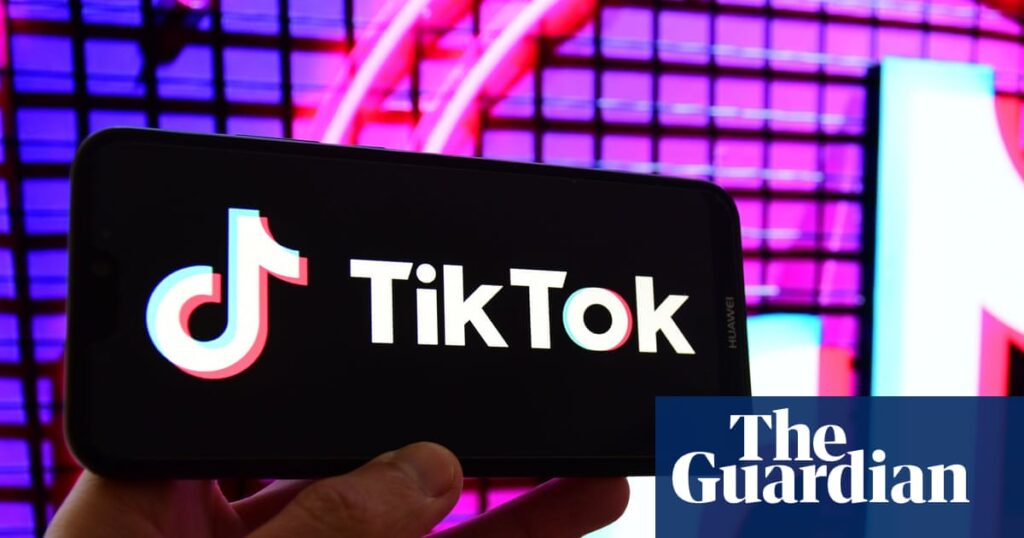A French lawmaker has asked the state prosecutor for a criminal investigation into whether TikTok was responsible for “endangering the lives” of its young users.
Arthur Delaporte, a Socialist MP, said he co-chaired a six-month French parliamentary inquiry into TikTok’s psychological effects on minors and heard testimony from families, social media executives and influencers.
He told the broadcaster FranceInfo: “The conclusion is clear: TikTok has deliberately endangered the health and lives of its users. That is why I have decided to refer the matter to the Paris public prosecutor.
“It seems to me that there are offences of a criminal nature, of active complicity, and secondly, when TikTok executives came to see us, they told us that they were unaware of anything … and I believe that this also constitutes perjury.”
It is now up to the prosecutor to decide whether to open an investigation into the popular short video platform.
The French parliamentary committee was set up to examine TikTok and its psychological effects on young people after a 2024 French lawsuit against the platform by seven families who accused it of exposing their children to content that was pushing them towards ending their lives.
The parliament committee’s final report, published on Thursday, found that TikTok was like a “slow poison” to children. The co-head of the inquiry, centrist lawmaker Laure Miller, told France Info that TikTok was an “ocean of harmful content” that was very visible to children through algorithms that kept them in a bubble.
The report recommended that children under 15 in France should be banned entirely from using social media, and those aged between 15 and 18 should face a night-time “digital curfew”, meaning social media would be made unavailable to them between 10pm and 8am.
The report also called for a major public information campaign and a new offence of “digital negligence” for “irresponsible parents” who did not oversee their children’s use of social media.
Delaporte told France Info that making those recommendations was a way of starting a debate in society. He said: “The main issue is European regulation and how we can force platforms to modify their algorithm.”
A TikTok spokesperson said: “We categorically reject the commission’s misleading characterisation of our platform that attempts to scapegoat our company on industry-wide and societal challenges. TikTok has an ongoing, robust trust and safety programme with more than 70 features and settings designed specifically to support the safety and wellbeing of teens and families on our platform.”
Executives for TikTok, which is owned by the Chinese company ByteDance, told the French parliamentary committee that the app used AI-enhanced moderation that last year caught 98% of content infringing its terms of service in France.
Emmanuel Macron’s office had indicated it wanted social media banned for children and young adolescents, after Australia last year started drafting its own landmark law with a prohibition for those under 16.
Géraldine, whose 18-year-old daughter ended her life, told Agence France-Presse that after her daughter’s death last year she had discovered videos of self-harm her daughter had published and looked at on TikTok.
“TikTok didn’t kill our little girl, because she wasn’t well in any case,” she said. But she accused TikTok of falling short in its online moderation, and plunging her daughter deeper into her dark impulses.
Agence France-Presse and Reuters contributed to this report

